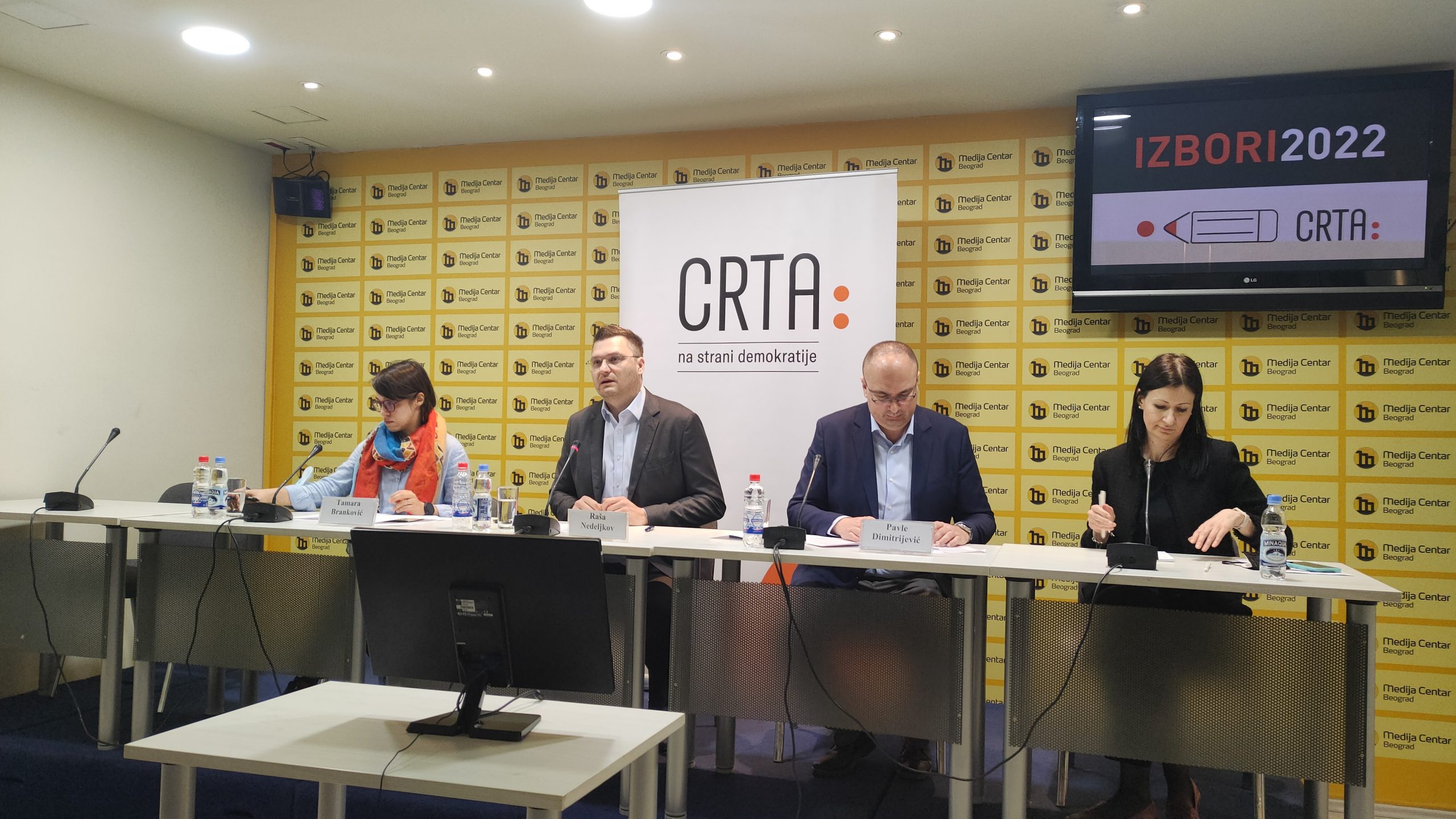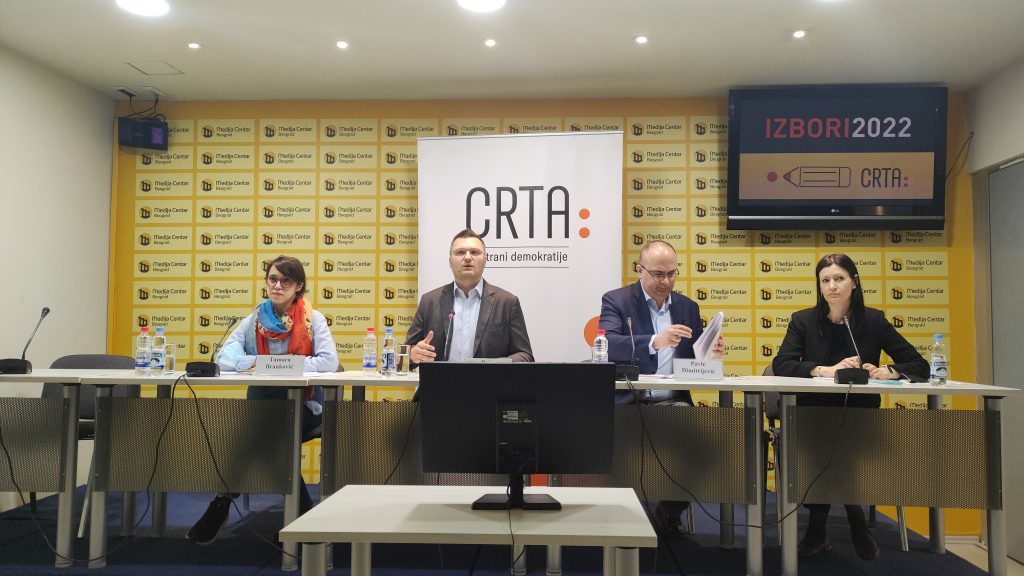Election campaign in worse conditions than 2020.
 Foto: Crta
Foto: Crta
Institutions responsible for implementing laws and protecting voter rights did not, through their work, sufficiently contribute to protecting the public interest and achieving a higher degree of standards for free and democratic elections. Those institutions that did react to law breaches during the campaign did not influence a change in behaviour of those electoral actors who abused their institutional advantages in the election campaign.
Measures for improving electoral conditions, which resulted from the inter-party dialogue held along two tracks, brought about a more complex legal and institutional framework for conducting elections. However, as the CRTA Observation Mission concluded after its long-term observation of the election campaign, these measures did not in practice contribute to solving the burning issues of the electoral process: media inequality of election participants, abuse of public resources, clientelistic practices, or pressure on voters.
Due to the introduction of mandatory election programs, there was an increase in the representation of the opposition on television channels with national coverage. The presence of government representatives decreased from 85% of the total time dedicated to political actors, which was documented prior to the official start of the campaign, to 64%, while opposition parties’ media presence increased from 15 to 36%. However, the ruling parties are still dominating the regular news programs (75%).
Instead of competing policies and programs, the election campaign is marked by more severe abuses of state institutions and their resources, which heightened the inequality between ruling and opposition parties.
Illegal influence on voters, a practice documented in the pre-electoral period as well, has intensified during the official campaign. Almost one in ten political activities, registered by CRTA’s observers, had a clientelistic note, reflecting direct or indirect vote-buying. The scope of documented pressures on voters, through coercion or intimidation, or in the form of vote-buying, shows that the right to vote freely is endangered for certain groups. All documented cases of pressure are exclusively connected to the ruling parties, and most of them to state institutions as well.

Serious claims about forging signatures in the candidacy process, which granted one electoral list a spot on the ballot, as well as allegations of Voter Register manipulation, contributed to the further deterioration of the overall citizens’ trust in the integrity of the electoral process. Voting notices once againg caused confusion and doubt in the accuracy of the Voter Register, while the competent Ministry’s reaction was neither timely nor adequate.
The Republic Electoral Commission (REC) and the Belgrade City Electoral Commision worked in accordance with the law and the existing legal framework, while local electoral commissions, which now have competences in conducting national elections, demonstrated differing practices in their work and conduct.
CRTA will further focus on Election Day, with the largest observation mission so far, consisting of more than 3,000 observers (twice as many as during the 2020 elections) trained according to the highest international standards.








